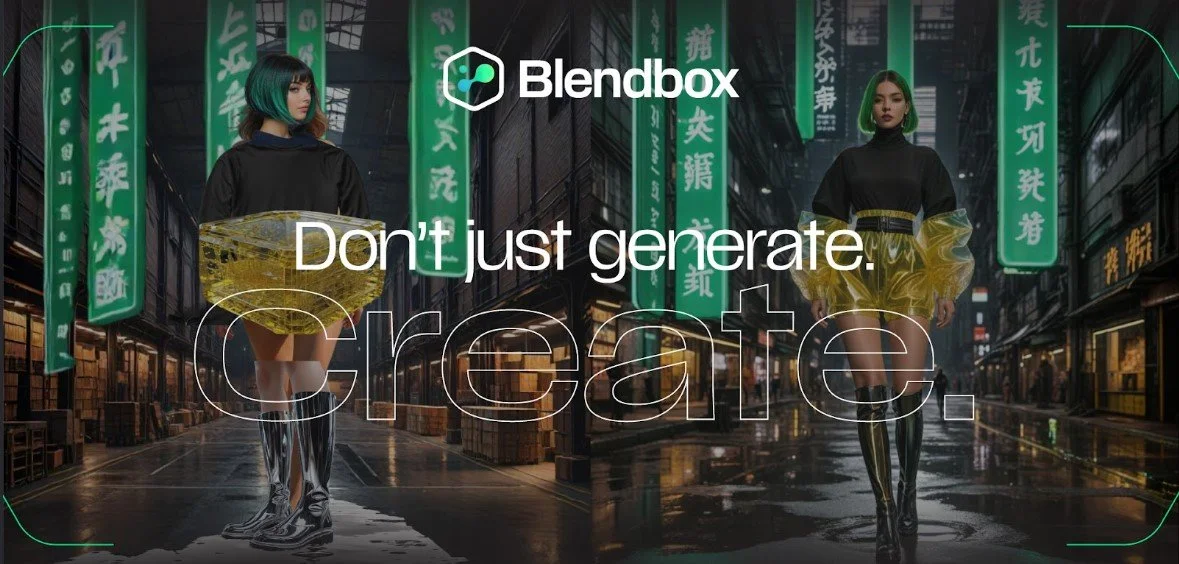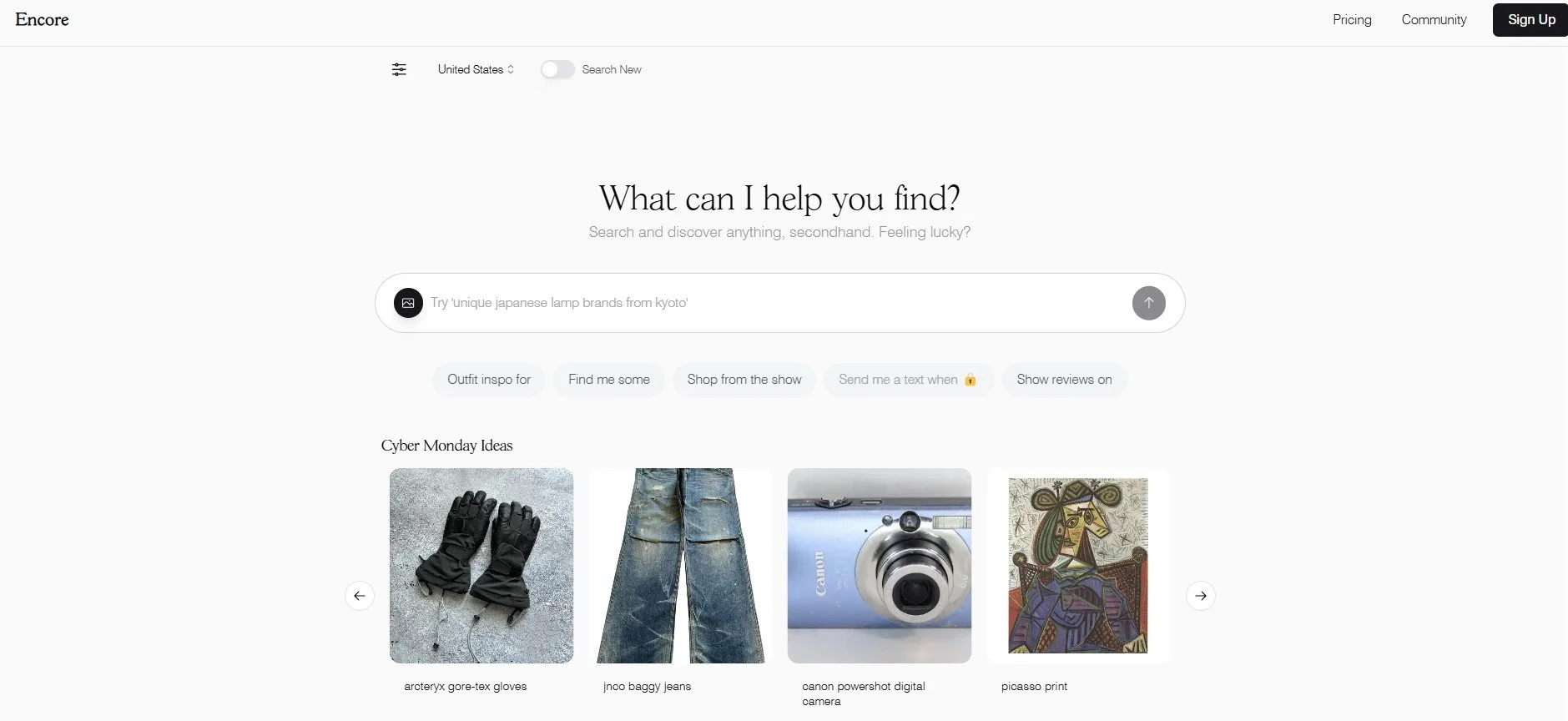Major breakthroughs in the markets for art, books, and fashion arrive perfectly timed for the holiday season. Tech innovations demonstrate their ability to reshape markets and incentivize commerce across digital economies. From fine art to rare fashion finds, tech is redefining how we navigate digital art and cultural commerce. Read on to learn how you might make your next purchase with the help of artificial intelligence or the blockchain.
NALA Art Market Launches Visual-Search Feature
Coined the “Spotify for art,” Network Artistic Learning Algorithm (NALA) has launched a marketplace for users to navigate their artistic offerings and better search their listings. An online platform aimed at connecting visual artists directly with patrons, has launched a new feature allowing users to upload images of artworks they love to search for similar pieces in the marketplace. This approach aims to streamline the search process for customers seeking specific styles or types of works based on what they already know or want through this new visual search capability.
Source: NALA
Art.Tech Acquires GM.Land
Leading digital art platform Art.Tech announced its acquisition of GM.Land, an immersive web 3.0 platform for specializing in creating digital real estate spaces for microblogging, fan engagement, exhibition, and trade. Powered by blockchain technology and AI, Art.Tech plans to use GM.Land assets and branding to create a social platform centered around digital art economies. Introducing shared revenue models for stakeholders, the market will include direct creator royalties, platform sustainability, and shared creator-fund distributing portions of fees to participants. The platform is announced to launch in the first quarter of 2025.
Source: GM.Land, X
Blockade Introduces Blendbox
Blockade's latest AI art tool, Blendbox, introduces a fresh perspective on AI-assisted art creation that prioritizes artistic control over automated generation. Combining AI capabilities with traditional digital art workflows, the software lets creators manipulate AI-generated elements through an intuitive visual system rather than relying solely on text descriptions. Artists can work with generated content much like they would in traditional digital art software, making precise adjustments to composition and applying localized changes while maintaining a record of their creative decisions. Though the platform builds on Stable Diffusion's technology, its developers plan to integrate various AI models to expand creative possibilities. The tool marks a shift in AI art creation by emphasizing more intentional design choices over randomized outcomes, with future plans including enhanced lighting controls and 3D integration. This approach aims to reposition AI as a practical addition to an artist's toolkit rather than a replacement for creative expertise.
Source: Blockade Labs
AI For Online Thrifting
A new thrifting tool, Encore, has emerged from the collaboration of Y Combinator alums Alex Ruber and Parth Chopra. The platform tackles a common problem in thrift shopping by combining search results from various resale websites into one unified interface. The innovative search engine leverages AI technology to understand detailed search requests, letting shoppers find items by describing styles they've spotted in media or specifying their exact needs. Seeing significant user growth with tens of thousands of monthly searches, the platform currently earns money through retail partnerships and has introduced a premium tier that provides additional features like image searching for a monthly fee of $3.
Source: Shop Encore
Spines Disrupting The Self-Publishing Space
Spines is seeking to disrupt the publishing industry with the help of AI. Shifting the focus on AI from writing to publishing, Spines runs a self-publishing company leveraging AI for editing, market analysis, and distribution all in an attempt to cut publishing costs and incentivize more self-publishing activity among aspiring writers. Cutting the publishing process down from upwards of 18 months to as little as a few weeks, Spines has already published over 1,700 titles, raised over $16 million in series A funding, and aims to take its talents to the realm of audiobooks soon. While AI has already begun emerging in established publishing venues as an aid to the process, most outfits’ costs can still run in the tens of thousands without a guaranteed deal at the end, while Spines lowers the cost to as low as $1,200 for guaranteed services and distribution. Spines does not use proprietary AI models, but does not disclose which available models it uses on its back-end.
Source: Spines
Google Lens Shopping
Google is enhancing shopping with new in-store features that bridge digital and physical retail experiences. The company is expanding Google Lens functionality to help shoppers make more informed decisions while browsing brick-and-mortar stores, enabling them to instantly access product reviews, compare prices across retailers, and check local inventory availability. The new system, leveraging Google's extensive product database and AI technology, is initially rolling out for beauty items, toys, and electronics at select major retailers in the United States. Complementing this update, Google is also introducing product search capabilities to its Maps feature and expanding payment options in Google Pay, demonstrating the company's broader strategy to integrate digital shopping tools into the physical retail experience. These features aim to give consumers access to online shopping benefits while maintaining the traditional in-store shopping experience.
Source: Google Lens
-
“Blendbox Is an AI Art Tool That Gives Control Back to Artists, and ‘Rethinks How AI Art Should Work’ | Creative Bloq.” October 31, 2024. https://www.creativebloq.com/art/digital-art/blockades-new-ai-art-tool-gives-control-back-to-artists-and-rethinks-how-ai-art-should-work.
“Encore | Find the Best Secondhand Deals.” Accessed November 2024. https://www.shopencore.ai/.
“Google Lens Can Now Check Prices and Inventory When Shopping in the Real World | TechCrunch.” November 19, 2024. https://techcrunch.com/2024/11/19/google-lens-new-feature-makes-it-easier-to-shop-products-in-store/.
Lunden, Ingrid. “Itching to Write a Book? AI Publisher Spines Wants to Make a Deal.” TechCrunch (blog), November 19, 2024. https://techcrunch.com/2024/11/19/itching-to-write-a-book-ai-publisher-spines-wants-to-make-a-deal/.
markets.businessinsider.com. “NALA Launches Marketplace with Groundbreaking New Algorithm to Revolutionize Art Discovery.” October 29, 2024. https://markets.businessinsider.com/news/stocks/nala-launches-marketplace-with-groundbreaking-new-algorithm-to-revolutionize-art-discovery-1033912666.
Mehta, Ivan. “Encore Is an AI-Powered Search Engine for Your Thrifting Needs.” TechCrunch (blog), November 10, 2024. https://techcrunch.com/2024/11/10/encore-is-an-ai-powered-search-engine-for-your-thrifting-needs/.
Raza, Ahmed, and Angela Scott-Briggs TechBullion. “Art.Tech Acquires GM.Land in Strategic Move to Broaden Web3 Appeal.” TechBullion (blog), November 12, 2024. https://techbullion.com/art-tech-acquires-gm-land-in-strategic-move-to-broaden-web3-appeal/.







